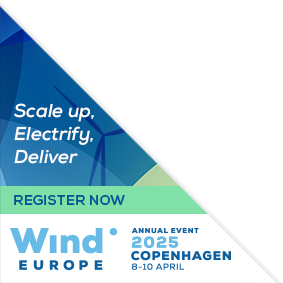We would like to invite you to come and see the posters at our upcoming conference. The posters will showcase a diverse range of research topics, and will give delegates an opportunity to engage with the authors and learn more about their work. Whether you are a seasoned researcher or simply curious about the latest developments in your field, we believe that the posters will offer something of interest to everyone. So please join us at the conference and take advantage of this opportunity to learn and engage with your peers in the academic community. We look forward to seeing you there!

PO030: Can Europe's offshore wind ambitions be aligned with the Global Biodiversity Framework Targets?
Alex Hampson, Partner (Renewables), ERM
Abstract
The Ostend Declaration of 2023 set ambitious targets for North Sea offshore wind (OW) of about 120 gigawatt (GW) by 2030 and 300 GW by 2050, significantly increasing the targets set in the EU Strategy on Offshore Renewable Energy Europe (2020) of an installed capacity of >60 GW of offshore wind by 2030.
North Sea bordering states also have marine and coastal biodiversity imperatives, imposed by national and multinational treaties and policies, such as the Global Biodiversity Framework (GBF). This catalyses and enables urgent and transformative action by Governments, subnational and local authorities, financial institutions, and all society to halt and reverse biodiversity loss. The GBF requires policy action to reduce and / or reverse drivers of undesirable change that have exacerbated biodiversity loss, by 2050.
Within this climate of biodiversity loss, it is becoming increasingly challenging for offshore windfarms (OWFs) to gain consent without having to accept spatial and temporal restrictions during each project phase, and /or the development of compensatory schemes to compensate adverse effects on marine biodiversity. Some projects have had their consent refused on biodiversity issues, highlighting the importance of mitigating biodiversity loss through all stages of the consenting process.
In order to realise OW targets and allow OWFs to contribute to the aims and targets of the GBF, OW must be developed at scale without a resulting loss of marine biodiversity, and preferably in a nature positive way. Developers now need to consider ways to mitigate biodiversity loss and incorporate measures for net gain / net positive impact (NPI) into their projects at the project award stage.
Here we present a review of current approaches to address NPI options for OWFs from the North Sea and consider whether current approaches are sufficient to allow the joint targets of scaling offshore wind deployment and reversing biodiversity loss.











